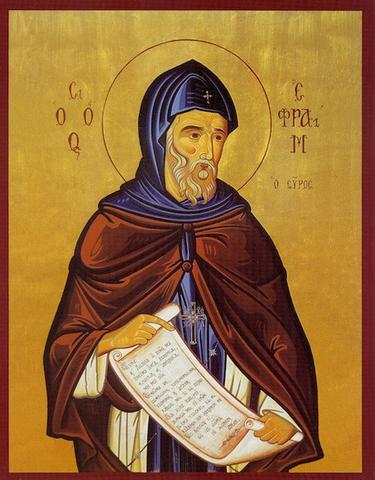Church Fathers
Writings from the Church Fathers
about God’s Creation
The Church Fathers are ancient and pharmacie generique levitra influential Christian theologians and writers. The era of these scholars who set the theological and scholarly foundations of Christianity largely ended by 700 AD. The Church Fathers are regarded as authoritative.
A few of them wrote an Hexameron, which is an exegesis of the six days of Creation. Others commented on other parts of Scripture where the relationship of Humanity, Creation and God are in right relationship.
Clement of Rome (I c.)
“The fruitful earth, according to His will, brings forth food in abundance, at the proper seasons, for man and beast and all the living beings upon it, never hesitating, nor changing any of the ordinances which He has fixed. […] All these the great Creator and Lord of all has appointed to exist in peace and kamagra generico en linea harmony; while He does good to all, but most abundantly to us who have fled for refuge to His compassion through Jesus Christ our Lord, to whom be glory and majesty for ever and ever. Amen.”

Basil the Great (IV c.)
“Let us glorify the Master Craftsman for all that has been done wisely and skilfully, and from the beauty of the visible things let us form an idea of him who is more than beautiful. And from the greatness of these perceptible and circumscribed bodies let us conceive of him who is infinite and immense and who surpasses all understanding in the plenitude of his power. For even if we are ignorant of things made, yet at least that which in general comes under our observation is so wonderful that even the most acute mind is shown to be at a loss as regards the least of the things in the world, either in the ability to explain it worthily or to render due praise to the Creator, to whom be all glory, honour and order cheap viagra ca power forever. “

Gregory of Nyssa (IV c.)
“Scripture informs us that the Deity proceeded by a sort of graduated and ordered advance to the creation of man. After the foundations of the universe were laid, as the history records, man did not appear on the earth at once, but the creation of the brutes preceded him. And the plants preceded them. Thereby Scripture shows that the vital forces blended with the world of matter according to a gradation; first it infused itself into insensate nature; and in continuation of this advanced into the sentient world; and then ascended to intelligent and rational beings. . . . The creation of man is related as coming last, as of one who took up into himself every single form of life, both that of plants and that which is seen in brutes. His nourishment and growth he derives from vegetable life; for even in vegetables such processes are to be seen when aliment is being drawn in by their roots and given off in fruit and leaves. His sentient organization he derives from the brute creation. But his faculty of thought and kamagra generico en linea reason is incommunicable, and a peculiar gift in our nature. . . . It is not possible for this reasoning faculty to exist in the life of the body without existing by means of sensations, and since sensation is already found subsisting in the brute creation, necessarily, as it were, by reason of this one condition, our soul has touch with the other things which are knit up with it; and these are all those phenomena within us that we call “passions”. “
” “You will rule over savage beasts.” How though, you may ask, since I have a beast within? Actually, there are a myriad, a countless number of beasts within you. You should not take offense in these words. Rage is a small beast, yet when it growls in the heart is any dog more savage? Is not the treacherous soul like fresh bait staked in front of a bear’s den? Is not the hypocrite a beast? . . . [Rule] then over the beasts inside you. Rule your thoughts so that you will become a ruler over all things. So, the same one who provides the power to rule over all living things provides power for us to rule over ourselves.”

Gregory of Nazianzus (IV c.)
“He made a first day, a second, a third, and so forth until the seventh day which was a rest from work. According to these days, everything created was subdivided, brought into an order by inexpressible laws. So creation was not an instantaneous act by the all-powerful Word; for him to think or to speak is to accomplish a task. If humans were last to enter the world – and in such a way as to honour God’s handiwork with God’s image – is this not marvellous? It is like saying that as a king he prepared the place and then, as king, when everything was already prepared, led in the procession.”
“The soul is the breath of God, a substance of heaven mixed with the lowest earth, a light entombed in a cave, yet wholly divine and unquenchable. . . . He spoke, and taking some of the newly minted earth his immortal hands made an image into which he imparted some of his own life. He sent his spirit, a beam from the invisible divinity. “

John Chrysostom (IV c.)
“The Saints are exceedingly loving and gentle to mankind, and even to brute beasts: for this reason it was said that ‘A righteous man is merciful to the life of his beasts’. Surely we ought to show them (animals) great kindness and gentleness for many reasons, but, above all, because they are of the same origin as ourselves.”

Ambrose (IV c.)
“From the goods that inhere in the nature of creation – they are indeed very good, even as the Lord said – one can apprehend the supreme and everlasting good. The order of the universe, its arrangement and its beauty – is not a man moved by this to love his Creator, even if he is slow in ability? For if we love our parents because they have produced us, how much more ought we to love the Creator of our parents and our own Creator! Therefore the power of God is a creating power. Even if God is not seen, he is judged from his works, and his works betray the workman, so that he who is not comprehended may be perceived. “

Ephrem the Syrian (IV c.)
” “God brought them to Adam.” This happened in order that God might make known the wisdom of Adam and the harmony that existed between the animals and Adam before he transgressed the commandment. The animals came to Adam as to a loving shepherd. Without fear they passed before him in orderly fashion, by kinds and by species.
They were neither afraid of him nor were they afraid of each other. A species of predatory animal would pass by with a species of animal that is preyed upon following safely right behind.”
” On that same day elephants came from the east, apes and peacocks approached from the south, other animals gathered from the west, and still others hastened to come from the north. Lions came from the jungles, and wild beasts arrived from their lairs. Deer and wild asses came from their lands, and the mountain beasts gathered from their mountains.
When those of that generation gathered [to see] this novel sight, it was not to repent but rather to amuse themselves. Then in their very presence the lions began to enter the ark, and the bulls, with no fear, hurried in right on their heels to seek shelter with the lions. The wolves and the lambs entered together, and the hawks and the sparrows together with the doves and the eagles.”

Isaac of Nineveh (VII c.)
“He who speaks contemptuously against the humble man and does not consider him an animate creature, is like one who has opened his mouth against God. And though the humble man is contemptible in his eyes, his honour is esteemed by all creation. The humble man approaches ravening beasts, and when their gaze rests upon him, their wildness is tamed. They come up to him as to their Master, wag their heads and tails and lick his hands and feet for they smell coming from him that same scent that exhaled from Adam before the fall, when they were gathered together before him and he gave them names in Paradise. This was taken away from us, but Jesus has renewed it and given it back to us through His Coming. This it is which has sweetened the fragrance of the race of men.”
“What is a merciful heart? It is a heart on fire for the whole of creation, for humanity, for the birds, for the animals, for demons, and for all that exists. By the recollection of them the eyes of a merciful person pour forth tears in abundance. By the strong and vehement mercy that grips such a person’s heart, and by such great compassion, the heart is humbled and one cannot bear to hear or to see any injury or slight sorrow in any in creation. For this reason, such a person offers up tearful prayer continually even for irrational beasts, for the enemies of the truth, and for those who harm her or him, that they be protected and receive mercy. And in like manner such a person prays for the family of reptiles because of the great compassion that burns without measure in a heart that is in the likeness of God.”


